Suruchi Bhadwal
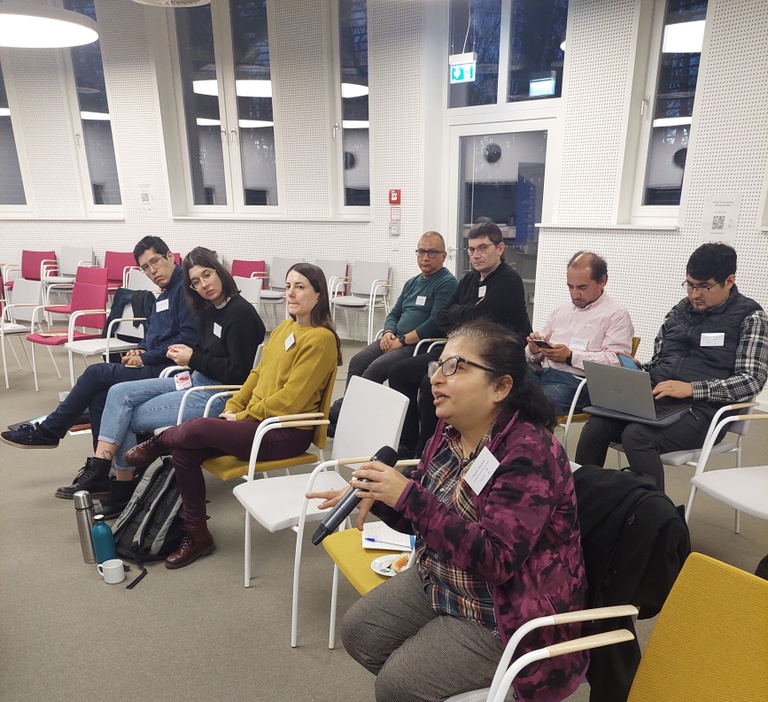
22/01/2024-26/01/2024: Indian guest researcher Suruchi Bhadwal from TERI, the Energy and Resources Institute visited PIK for the B-EPICC Final Events. During the B-EPICC Final Events she looked back at the collaborative work to reduce the gap between climate research and its application in policy and societal decision-making in India. Suruchi Bhadwal collaborated with the project´s researcher Prof. Dr. Elena Surovyatkina in the field of Monsoon Forecasting as well as with the project´s researchers in the field of climate migration. Her focus is on producing new knowledge and information at sub-regional scales over India, specific to different climate sensitive sectors to assist decision makers and stakeholders in better planning for the future. During the Final events she compared the situation and experience in India with guest researchers from other partner countries and discussed possible joint research and capacity building initiatives beyond the B-EPICC project.
Dr R. Krishnan
07/07/2023-10/07/2023: Dr R. Krishnan visited PIK in the context of the B-EPICC project.
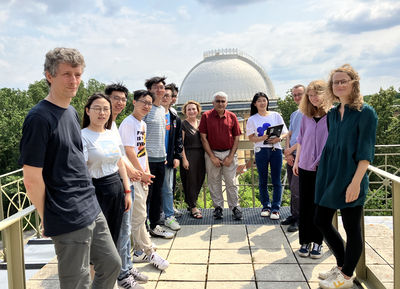
On July 7, Dr R. Krishnan was welcomed by Prof. Elena Surovyatkina as part of the B-EPICC project. The two scientists have collaborated for many years and discussed the Indian Summer Monsoon under Climate Change during their meeting, planning for further advance. On July 8, the scientists discussed the topic of the long-term forecasts of the onset and withdrawal of the Indian Summer Monsoon that Prof. Surovyatkina provided for central India already for seven years. On July 10, Dr R. Krishnan held an open lecture on “Declining Arctic Ice and its Implications on the South Asian Monsoon in a Changing Climate” at PIK, where he provided an overview of climate change in the Arctic and discussed key scientific issues based on the IPCC AR6 report. Dr.Krishnan also described ongoing efforts at the Indian Institute of Tropical Meteorology to study the linkages between the Arctic and the South Asian monsoon region in a changing climate. Dr. R. Krishnan's valuable insights are important for the success of the B-EPICC project.
Santosh Kumar Muriki and K. Venkatramana
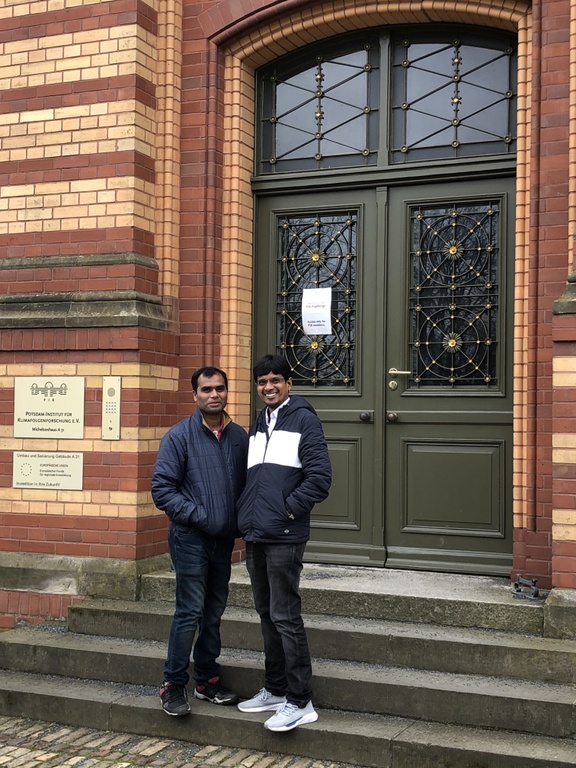
March and April 2023: Santosh Kumar Muriki and K. Venkatramana from The Energy and Resource Institute (TERI) in New Delhi visited PIK in March and April 2023. The objective of this guest stay was to present, discuss and further develop their research on analyzing and visualizing dynamical and thermodynamic features of precipitation extremes over the Indian subcontinent. Since our Indian guest researchers came from longstanding project partner TERI, their stay also served as an opportunity to discuss how to best disseminate project results in India and exchange on knowledge transfer activities beyond the project duration.
Established in 1974, TERI focuses on research and policy design in the fields of energy, environment, and sustainable development. Since the beginning of the B-EPICC project in 2018, TERI has been organizing stakeholder exchange and, with their vast network and experience, helped in realizing important project goals in India. This cooperation, thus, has brought B-EPICC closer to its overall goal of bridging the gap between climate research and policy, corporate, and societal decisions.
Santosh Kumar Muriki and K. Venkatramana aim to understand dynamical and thermodynamic features of precipitation extremes over India. They intend to comprehend changes in these processes over the Indian subcontinent in a warming climate. This knowledge not only aids in enhancing model efficacy and forecasting skills, but also in designing regional planning and disaster risk reduction strategies. While visiting PIK, Santosh and Venkat showed their findings – among other things by giving a presentation on “Understanding the future changes in large-excess monsoon rainfall over India in a warming climate” – and received feedback on their research and future research trajectories. They had meetings with several PIK researchers and also discussed how to integrate their findings in the Indian section of PIK‘s web portal ClimateimpactsOnline. They were closely accompanied by B-EPICC’s Knowledge Broker Mechthild Becker during their stay.
Further information on B-EPICC’s work in India on monsoon forecasting and in the fields of hydrology and water resources, agriculture and migration, can both be found on the B-EPICC project website and on the B-EPICC project website of our partner TERI.
International Monsoon Study Group (IMSG)

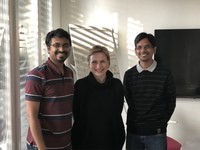
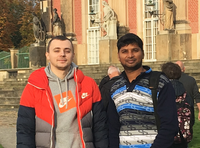
October 2019 - January 2020: With global warming, the Indian Monsoon is changing, breaking well-established “rules” of the phenomenon and thus becoming more unpredictable. A new understanding of Monsoon is urgently needed to identify if the 2019 Indian Summer Monsoon year was an exceptional case or if it is the future trend. If it is a trend, then India needs to reconsider the strategy of the monsoon action plan and disaster management. The Monsoon Forecasting Team of EPICC conducted an International Monsoon Study Group (IMSG) under Climate Change. The objective of the group was to investigate complex dynamical processes during the monsoon and analyze climate change effects on them.
Prof. Elena Surovyatkina leads the Monsoon Study Group. Monsoon experts working in different research areas of monsoon dynamics and students were invited to PIK to participate in the IMSG.
Mr. Shiva Ji Singh Patel, an M.Sc. student from Banaras Hindu, University, Varanasi, India analyzed the evolution of sea surface temperatures in the Indian Ocean during the summer monsoon. Mr. Roman Medvedev, a Ph.D. student from the Space Research Institute of the Russian Academy of Sciences (IKI), Moscow, investigated the effect of climate change on the withdrawal of the Indian monsoon. In particular, he investigated spatial patterns in the Indian Ocean and its relationship to the monsoon withdrawal under the influence of climate change. Dr. Rupali Laxman Sonone, a Post-Doc from the Indian Institute of Technology Madras (IIT Madras), India utilized her expertise in the field of complex network analysis to reveal connections between monsoon and the ENSO phenomenon. Using near-surface air temperatures, she investigated teleconnections with Indian monsoon during El Niño and La Niña events. Mr. Santosh Kumar Muriki, a Ph.D. student from The Energy and Resources Institute (TERI), Delhi, India, worked on developing prediction schemes for the forecast of the Indian monsoon in different parts of central India.
The three-month program of the IMSG was very successful, filled with interesting research and discussions, promising results, and future goals. We are continuing our collaborative research with the participants of the IMSG and planning the further extension of our Monsoon Study Group.
Prof. P.K. Joshi
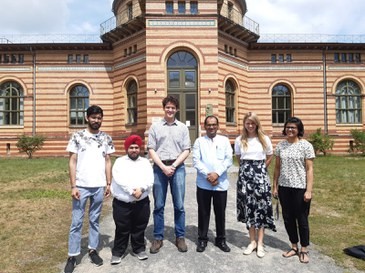
June 2019: Prof. Pawan K. Joshi, Professor at the School of Environmental Sciences (SES) and Concurrent Faculty, Special Centre for Disaster Research (SCDR), from the Jawaharlal Nehru University (JNU) visited PIK for a short-term research stay in June. His guest stay was aiming to exchange his expertise in geospatial techniques (Remote Sensing & Geographic Information Systems (GIS)) for environmental studies including landscape characterization and climate change studies with EPICC scientists, especially those researching on data integration, vulnerability assessment and the development of cross-sectoral understanding of climate impacts. Further exchanges with the EPICC team took place with regards to the vulnerability assessment, Himalayan communities and migration.
He held a lecutre on “Indian Western Himalayas in Climate Change regime”.
Please find more information on his talk in an abstract here.
Further information on Prof. Dr. P.K. Joshi can be found in his C.V.
Prof. Ramakrishna Ramaswamy
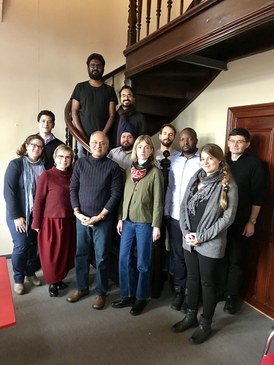
December 2018: Prof. Ramakrishna Ramaswamy, the president of the Indian Academy of Sciences (IAS) and senior professor at the Indian Jawaharlal Nehru University (JNU), visited the EPICC team at PIK. His short-term research stay was aiming to strengthen the international science cooperation with the EPICC project and other scientists from PIK.
Prof. Ramaswamy held a lecture jointly organized by the Research Department Complexity Science (formerly known as Transdisciplinary Concepts and Methods) and EPICC on "Strategies for control and generalized synchronization in coupled systems”.
In addition, he participated in a workshop organized by EPICC on "Indo-German-African opportunities for building climate capacities".
Finally, he invited the EPICC project to have its 2019 Indian workshop in the facilities of the IAS.
Please find more information here.






